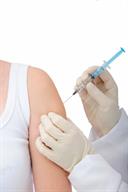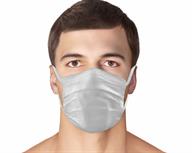Quarantine and Isolation: What to Know
Isolation is when you're sick and have to stay home and away from other people.
Quarantine is when you have to stay home for a certain amount of time after being around a sick person. This is to see if you become sick.
Quarantine and isolation are ways to help keep everyone safe from germs. These germs:
What diseases do I need to quarantine or isolate for?
You might need to stay home if you have these diseases, or have been near someone with the diseases:
When should I quarantine?
You should stay home if you've been close to someone who has, or is thought to have, a disease that spreads easily.
Close contact means being less than 6 feet (1.8 m) away from someone for 15 minutes or more in one day.
When should I isolate?
You should stay home if:
You're sick with a disease that spreads easily.
You test positive for a disease that spreads easily, even if you don't have symptoms.
You're sick and you think you may have a disease that spreads easily.
Get tested if you think you have a disease that spreads easily.
- If your test is negative and you feel better, you can stop staying home after 24 hours if:
Sometimes, you need two negative tests to stop staying home.
If your test results are positive, isolate as told by your health care provider or health officials.
Follow these instructions at home:
Medicines

-
Take your medicines only as told.
-
If you were given antibiotics, take them as told. Do not stop taking them even if you start to feel better.
-
Stay up to date on your shots (vaccines). Get vaccines and booster shots as told.
Lifestyle

When you're in quarantine or isolation:
Wear a high quality mask that fits well (if you must be around other people at home or in public).
Do not get close to people who may get very sick.
Use a bathroom that you don't have to share with other people, if you can.
Do not share personal items, such as cups, towels, spoons, or forks.
Wash your hands often with soap and water for at least 20 seconds. If you can't use soap and water, use hand sanitizer.
Get better air flow in your home by opening a window or door. This may stop the disease from spreading.
General instructions
-
Do not travel if you're in quarantine or isolation. Travel only when your provider or health officials say it's okay.
-
Call your provider or health department if you need advice on how to care for yourself.
-
Talk to your provider if you have a weak body defense system (immune system). This means your body can't fight infections easily. Vaccines might not work as well for you.
-
If you're sick, closely watch your symptoms. Follow instructions from your provider. You may be told to rest, drink fluids, and take medicine.
-
Follow guidelines for quarantine and isolation, especially if you're in a place where diseases can spread easily and quickly. These places include jails, homeless shelters, and cruise ships.
This information is not intended to replace advice given to you by your health care provider. Make sure you discuss any questions you have with your health care provider.

 When you're in quarantine or isolation:
When you're in quarantine or isolation: